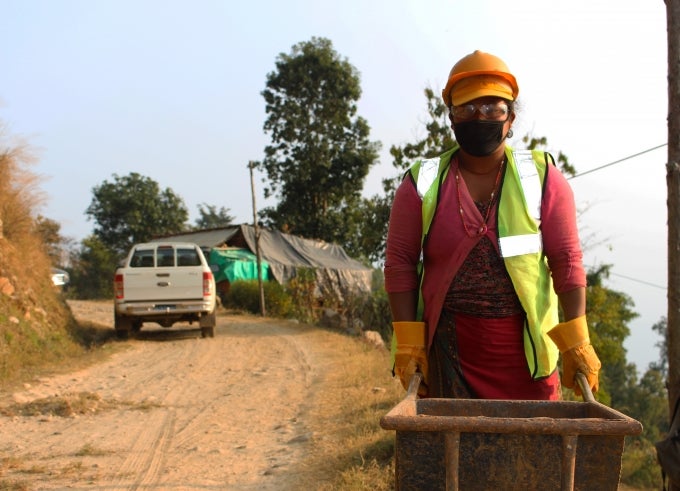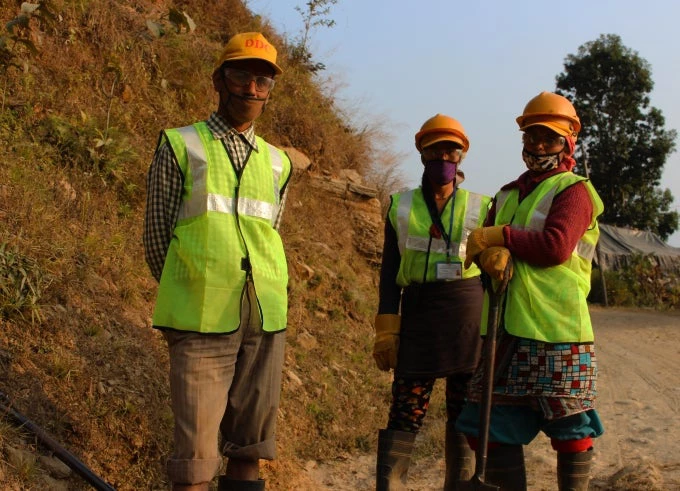
When the earthquake hit on the Saturday of 25th April last year, 35-year-old Bishnu Ghale was working in the fields near her house in Khanigaon VDC of Nuwakot district. The quake destroyed her house, but she was thankful her husband and three children were alive. She was thankful for a steady job, which meant she could quickly muster up the supplies to build a shelter and provide food for her family.
A month before the earthquake, Bishnu started working as a Road Maintenance Group worker, one of a group of 12 men and women who manage a 24 km stretch of rural road from Nuwakot to Malabhanjyang. She looked after the routine maintenance of the road, cleaned the drains, filled pits, cleared minor blockades and planted trees. Working 6 days a week, this earned her up to 11,000 Rupees a month, enough to keep her family going through the difficult months ahead.
Bishnu is one of 1850 such workers – mostly women from poor and marginalized communities - employed in 36 districts across Nepal who help to maintain about 3300 km of the local road network. As members of Road Maintenance Groups, they help ensure year-round functionality of rural roads and benefit from the livelihood opportunity this provides.
The initiative is part of the World Bank supported Strengthening National Rural Road Transport Program (SNRTP), which maintains, upgrades and rehabilitates rural transport infrastructure for all-weather movement. The project emphasizes a ‘maintenance first’ approach while promoting closer involvement of beneficiaries and local citizens.

In Tanahu, Aitimaya BK agrees. Aitimaya is the leader of an RMG in Tanahu’s Dhor Barahi road. She is the primary breadwinner in her family. “Husbands and wives would quarrel when there was not enough money to feed the family. Now we earn more than our husbands and they have no option but to behave amicably,” Aitimaya beams. Her fellow workers break into a chorus of laughter, echoing her sentiment.
The RMG program has offered many of the workers their first experience of formal employment – a change of occupation from homemaking or subsistence farming. The initiative has also given workers their first exposure to financial services. "I didn’t think I'd ever have a bank account or be able to make savings, “says Naina Parajuli, an RMG worker from Syangja district. The workers have access to mobile banking services and frequent the local bank. Accidental insurance as well as free health checkups at local health centers and hospitals is guaranteed by the program.
Recruitment of women and men from lowest income groups, marginalized communities and the disadvantaged including HIV-positive and differently-abled individuals is priority. Each RMG comprises of five to six workers who are mobilized by the District Technical Offices. The Village Development Committees and the Local Road Users’ Committees play a crucial role in the selection of the group members. A livelihood enhancement program to ensure sustained project gains for the RMG members has been introduced. The program encourages regular savings and promotes additional income generating activities for the RMG members.
Benefits of the road maintenance group program are two-fold: effective road maintenance and job creation to empower communities. As Bishnu Ghale works, with a helmet and boots over her sari, one can see the pride reflected in her eyes. “I am now actively involved in deciding how the family income is used. Family members and neighbors look up to me and respect me,” she says.


Join the Conversation